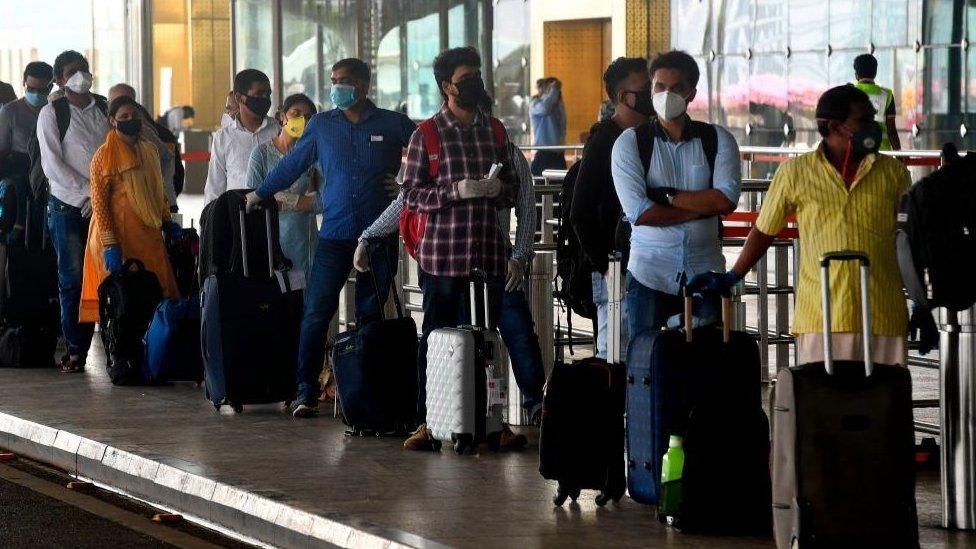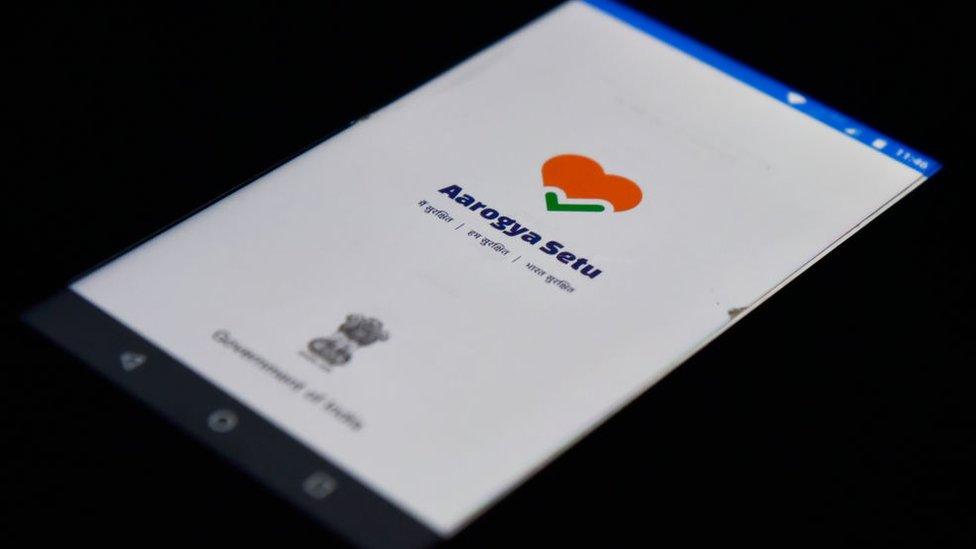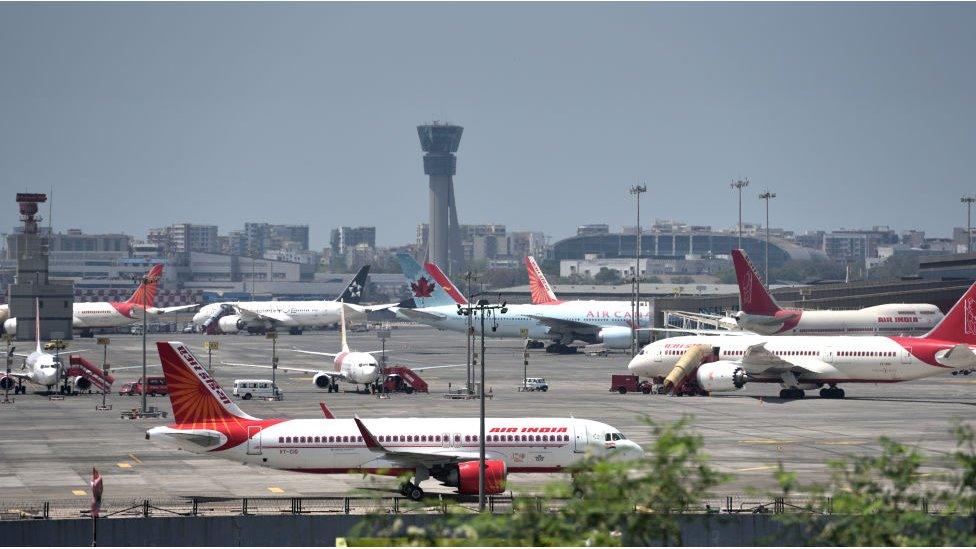India coronavirus: Chaos at airports as domestic flights resume
- Published

Airports are seeing long queues as flights resume after two months
Long queues and chaos greeted passengers at Indian airports as flights resumed two months after they were halted to help stop the spread of coronavirus.
Local media said almost 100 flights were cancelled, but many more took off.
Maharashtra state, which has India's highest number of Covid-19 cases, said it would only allow 50 flights a day, leading to several cancellations.
Angry passengers say they were not informed ahead of time.
"Our flight was cancelled and there is no-one to answer us at the help desk. We don't know what to do now," a passenger in the southern city of Chennai told the ANI news agency.
He says he and his family have been in the city since 15 March, and finally booked tickets to fly back to their home in Mumbai, the capital of Maharashtra state. They only found out about the cancellation after arriving at the airport, the passenger said.
Several fliers also took to Twitter to complain that Air India, the national carrier, had not informed them of cancellations, and had mixed up departure schedules.
Allow X content?
This article contains content provided by X. We ask for your permission before anything is loaded, as they may be using cookies and other technologies. You may want to read X’s cookie policy, external and privacy policy, external before accepting. To view this content choose ‘accept and continue’.
Others say they only learned of cancellations after already waiting hours in long queues to enter the airport.
India has stepped up preventive measures ahead of resuming domestic flights.
Security officers are checking each passenger's temperature and verifying that they have downloaded the government's Covid-19 tracking app, Aarogya Setu. Other measures include disinfecting shoes and luggage.
India has recorded more than 138,000 cases of Covid-19 so far.
But the country has also begun easing restrictions on the nationwide lockdown imposed on 25 March, which saw passenger trains and flights suspended, and most businesses being asked to close or operate only with staff working from home.
Only those that were classified as essential - healthcare, food supply, government services and media - were allowed to run during the lockdown. But now, many of these restrictions have been lifted in areas that are not deemed hotspots.
- Published15 May 2020

- Published21 May 2020
